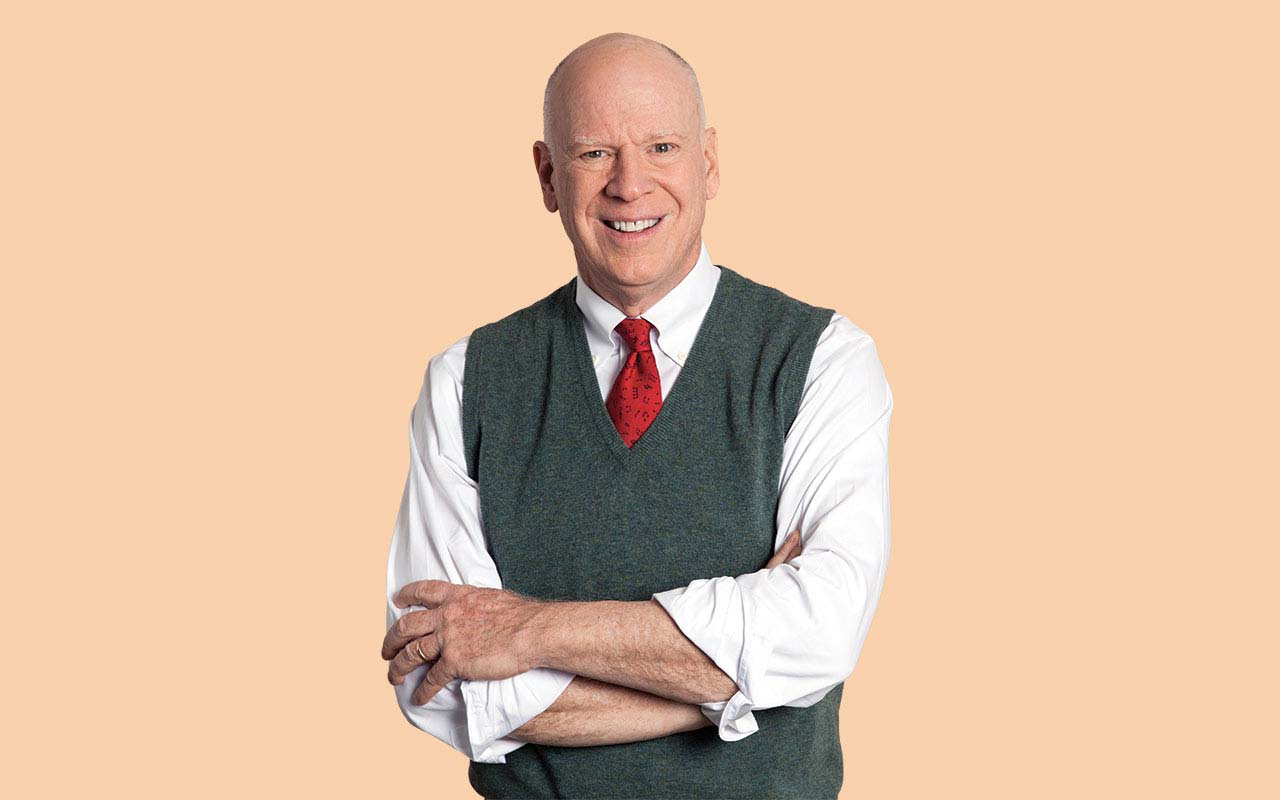Knight Kiplinger's 8 Keys to Financial Security
Over many years of publishing Kiplinger's Personal Finance magazine, my colleagues and I have built up a deep institutional memory of personal-finance wisdom, and I'd like to share some of it with you.


Profit and prosper with the best of Kiplinger's advice on investing, taxes, retirement, personal finance and much more. Delivered daily. Enter your email in the box and click Sign Me Up.
You are now subscribed
Your newsletter sign-up was successful
Want to add more newsletters?

Delivered daily
Kiplinger Today
Profit and prosper with the best of Kiplinger's advice on investing, taxes, retirement, personal finance and much more delivered daily. Smart money moves start here.

Sent five days a week
Kiplinger A Step Ahead
Get practical help to make better financial decisions in your everyday life, from spending to savings on top deals.

Delivered daily
Kiplinger Closing Bell
Get today's biggest financial and investing headlines delivered to your inbox every day the U.S. stock market is open.

Sent twice a week
Kiplinger Adviser Intel
Financial pros across the country share best practices and fresh tactics to preserve and grow your wealth.

Delivered weekly
Kiplinger Tax Tips
Trim your federal and state tax bills with practical tax-planning and tax-cutting strategies.

Sent twice a week
Kiplinger Retirement Tips
Your twice-a-week guide to planning and enjoying a financially secure and richly rewarding retirement

Sent bimonthly.
Kiplinger Adviser Angle
Insights for advisers, wealth managers and other financial professionals.

Sent twice a week
Kiplinger Investing Weekly
Your twice-a-week roundup of promising stocks, funds, companies and industries you should consider, ones you should avoid, and why.

Sent weekly for six weeks
Kiplinger Invest for Retirement
Your step-by-step six-part series on how to invest for retirement, from devising a successful strategy to exactly which investments to choose.
Over many years of publishing Kiplinger's Personal Finance magazine, my colleagues and I have built up a deep institutional memory of personal-finance wisdom, and I'd like to share some of it with you. The following advice first appeared in the 50th anniversary of the magazine in 1997, and it's still just as relevant today. I hope it helps you and your family build (and protect) your wealth and achieve success.

Invest in Yourself
Your own earning power -- rooted in your education and job skills -- is the most valuable asset you'll ever own, and it can't be wiped out in a market crash. Keep your earning power growing through continuous education, training and personal development. If you work in a field prone to periodic layoffs or falling earnings, think about a career change, especially if there's something else you've always dreamed of doing.
Consider this: A $30,000 pay hike can be viewed as an annual return on a capital investment, like earning a continuous yield of 6% on $500,000 of savings. You know how hard it is to save up $500,000. Maybe that $30,000 boost in salary is easier to achieve.

Borrow Sparingly
Use credit only to purchase things of lasting value: a home, education, maybe a car. Pay cash for everything else such as clothing, travel, entertainment and furniture. Even better, take advantage of the credit card company's free 30-day loan by charging responsibly and paying off the bill in full every month. Do you know anyone who got into big financial trouble because they didn't borrow enough money? I don't.

Pay Yourself First
If you feel you never have any money "left over" for investing after you pay all your bills, try reversing the bill-paying process. Make the first check you write each month a deposit to your mutual fund, money market or brokerage account. Then pay all your regular monthly bills, finishing up with the credit card bill. If you're having trouble paying that last bill, create a budget to help trim your discretionary spending -- but keep paying yourself first.

Don't Go for the Home Run
In investing, as in baseball, those who swing for the fences do hit the occasional home run. But they strike out a lot too, and their lifetime batting average -- average annual total return -- suffers accordingly. So shy away from highly volatile stocks, risky initial public offerings (IPOs), buying on margin and commodity trading. Don't try to time markets, because no one does it consistently well. Use dollar-cost averaging to invest regularly in markets good, bad and lackluster. Have the patience to wait out the occasional (and inevitable) bear markets.

Diversify, Diversify, Diversify
When tech stocks were flying high in the late '90s, safer investments like bonds, CDs and less-volatile blue-chip stocks were derided as sissy stuff. Diversification was considered boring. But successful investors have always known that any one class of assets -- stocks, real estate, bonds, cash -- will have its day in the doghouse and its day in the sun. That's why you've got to own all of them, in a mix that's right for your age, income, family responsibilities and tolerance for risk.

Live Simply Today for a More Comfortable Tomorrow
Deferred gratification is no fun, but it's the only way I know to fund your long-term goals -- college for your kids or grandkids, that vacation home you've always wanted, early retirement, a generous bequest to your alma mater. Take a close look at your current lifestyle, and if you see a lot of spending that is dispensable, consider it found money for the bigger dreams in your life.

Give Generously to Create a Better World
Your own financial security depends far more than you may think on the financial, physical and spiritual health of others in your community, our nation, our world. When you share your good fortune by donating your money, time and talent to charity, you help create a stronger economy and a healthier, safer world.
So give generously to education, your church, social-service agencies, the arts, medical research -- whatever you value most. It feels wonderful, it's the ultimate in enlightened self-interest, and it's the right thing to do. (See Smart Strategies for Giving to Charity for tax tips.)

Protect Yourself and Your Loved Ones
Before you acquire any financial assets, make sure you have enough insurance against life's big risks -- serious illness, disability and early death. Most people, young families in particular, are woefully underinsured, especially for disability. When an emergency arises, you and your family will never regret having "wasted" all those annual premiums on insurance you "don't need."
Profit and prosper with the best of Kiplinger's advice on investing, taxes, retirement, personal finance and much more. Delivered daily. Enter your email in the box and click Sign Me Up.

Knight came to Kiplinger in 1983, after 13 years in daily newspaper journalism, the last six as Washington bureau chief of the Ottaway Newspapers division of Dow Jones. A frequent speaker before business audiences, he has appeared on NPR, CNN, Fox and CNBC, among other networks. Knight contributes to the weekly Kiplinger Letter.
-
 Nasdaq Leads a Rocky Risk-On Rally: Stock Market Today
Nasdaq Leads a Rocky Risk-On Rally: Stock Market TodayAnother worrying bout of late-session weakness couldn't take down the main equity indexes on Wednesday.
-
 Quiz: Do You Know How to Avoid the "Medigap Trap?"
Quiz: Do You Know How to Avoid the "Medigap Trap?"Quiz Test your basic knowledge of the "Medigap Trap" in our quick quiz.
-
 5 Top Tax-Efficient Mutual Funds for Smarter Investing
5 Top Tax-Efficient Mutual Funds for Smarter InvestingMutual funds are many things, but "tax-friendly" usually isn't one of them. These are the exceptions.
-
 States That Tax Social Security Benefits in 2026
States That Tax Social Security Benefits in 2026Retirement Tax Not all retirees who live in states that tax Social Security benefits have to pay state income taxes. Will your benefits be taxed?
-
 10 Retirement Tax Plan Moves to Make Before December 31
10 Retirement Tax Plan Moves to Make Before December 31Retirement Taxes Proactively reviewing your health coverage, RMDs and IRAs can lower retirement taxes in 2025 and 2026. Here’s how.
-
 The Rubber Duck Rule of Retirement Tax Planning
The Rubber Duck Rule of Retirement Tax PlanningRetirement Taxes How can you identify gaps and hidden assumptions in your tax plan for retirement? The solution may be stranger than you think.
-
 Money for Your Kids? Three Ways Trump's ‘Big Beautiful Bill’ Impacts Your Child's Finances
Money for Your Kids? Three Ways Trump's ‘Big Beautiful Bill’ Impacts Your Child's FinancesTax Tips The Trump tax bill could help your child with future education and homebuying costs. Here’s how.
-
 Key 2025 Tax Changes for Parents in Trump's Megabill
Key 2025 Tax Changes for Parents in Trump's MegabillTax Changes Are you a parent? The so-called ‘One Big Beautiful Bill’ (OBBB) impacts several key tax incentives that can affect your family this year and beyond.
-
 What to Do With Your Tax Refund: 6 Ways to Bring Growth
What to Do With Your Tax Refund: 6 Ways to Bring GrowthUse your 2024 tax refund to boost short-term or long-term financial goals by putting it in one of these six places.
-
 What Does Medicare Not Cover? Eight Things You Should Know
What Does Medicare Not Cover? Eight Things You Should KnowMedicare Part A and Part B leave gaps in your healthcare coverage. But Medicare Advantage has problems, too.
-
 12 Great Places to Retire in the Midwest
12 Great Places to Retire in the MidwestPlaces to live Here are our retirement picks in the 12 midwestern states.
